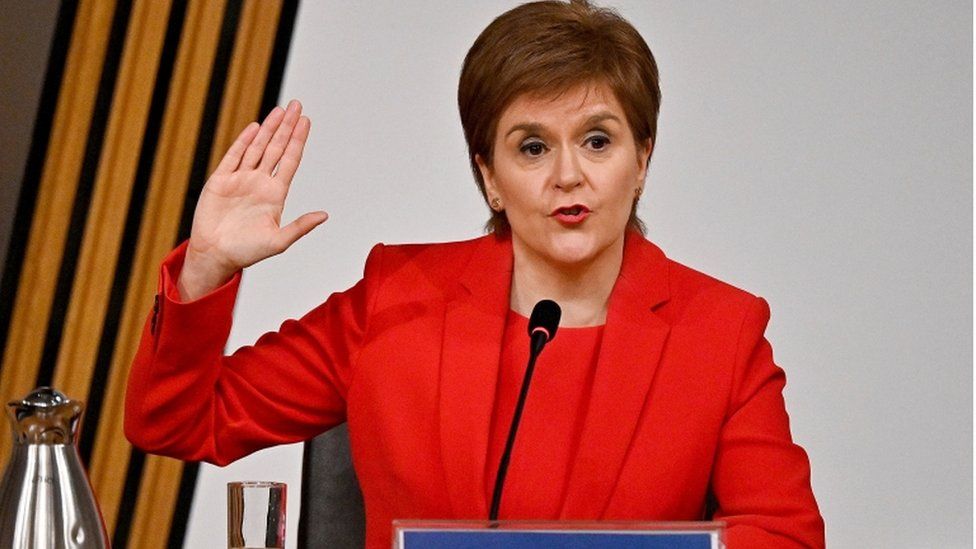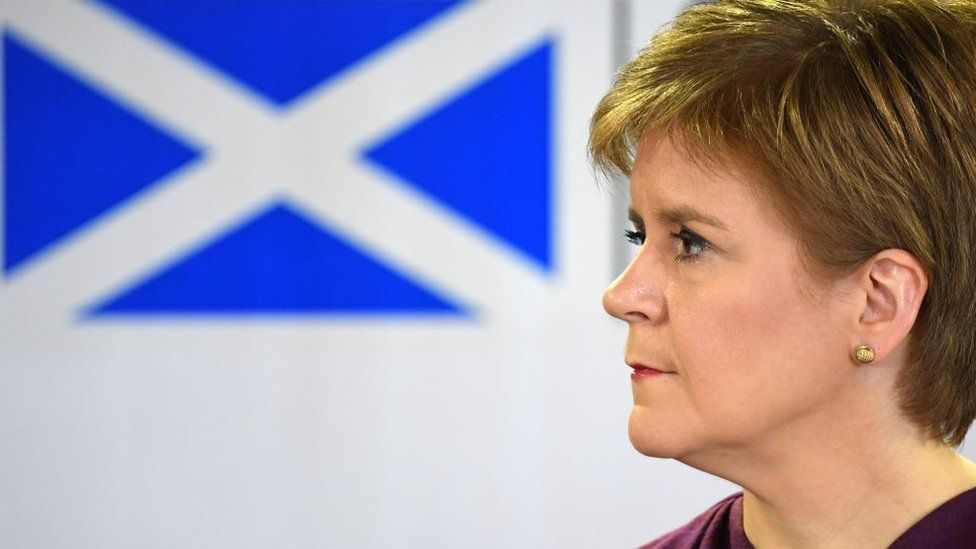BBC News 22 March 2021
Scotland's First Minister Nicola Sturgeon did not break rules during an investigation into her predecessor, Alex Salmond, according to an independent investigation.
It follows a bitter row between Ms Sturgeon and Mr Salmond. What's it all about?
Who are Alex Salmond and Nicola Sturgeon?
Alex Salmond was Scotland's first minister and Scottish National Party leader before Ms Sturgeon, who had been his deputy. She took over after the 2014 independence referendum, which saw Scotland back remaining in the UK by 55% to 45%.
Why have they fallen out?
The row began when allegations of sexual harassment - strongly denied - were made against Mr Salmond by two female civil servants in 2018.
The complaints were made after Ms Sturgeon asked for new government policies on sexual harassment to be put in place in the wake of the #MeToo movement. Mr Salmond believed the policy was aimed at him.
The Scottish government eventually admitted it had botched its investigation. It had to pay Mr Salmond's legal fees of more than £500,000 after it admitted it had acted unlawfully.
Mr Salmond has accused officials close to Ms Sturgeon - including her husband Peter Murrell, the SNP's chief executive - of plotting against him. They all deny these claims.
Then, in January 2019, Mr Salmond was arrested and charged with multiple counts of sexual assault, including attempted rape.
What happened in Alex Salmond's trial?
Mr Salmond was cleared of all 13 charges - which were alleged to have happened while he was first minister - after a trial last March.
The nine women who made the allegations included an SNP politician, a party worker and several current and former Scottish government civil servants and officials.
In court, Mr Salmond said the claims made about his alleged conduct were "deliberate fabrications for a political purpose", or "exaggerations".
After being acquitted, he said there was "certain information" he had been unable to talk about during the trial, but which would "see the light of day" in the future.
He has since claimed there was a "deliberate, prolonged, malicious and concerted effort" from some in the Scottish government and leading SNP figures to damage him and even have him sent to prison.
Ms Sturgeon has accused him of peddling false conspiracy theories and suggested her predecessor is angry because she "did not collude with him" to make the sexual harassment allegations "go away".
What have the inquiries been looking at?
Following the trial, two separate inquiries began. One is by a committee of MSPs and the other by James Hamilton, Ireland's former director of public prosecutions.
Mr Hamilton's inquiry looked at whether Ms Sturgeon breached the ministerial code - which sets out how ministers should behave. It examined whether she had interfered with the civil service investigation into the allegations against Mr Salmond, or misled parliament about what she knew and when.
This report cleared Ms Sturgeon of breaching the ministerial code.
Separately, the committee of MSPs has been examining the Scottish government's handling of the initial complaints against Mr Salmond.
Its report will be published on Tuesday - but some details have already been leaked..
MSPs on the committee are said to have voted by five to four that Ms Sturgeon misled their inquiry during her marathon evidence session earlier this month.
The committee is also expected to be critical of the government, which it has previously accused of attempting to frustrate its work.
What does this mean for Nicola Sturgeon?
The row has divided the SNP ahead of the Scottish Parliament election on 6 May, with some prominent MPs and many grassroots activists openly backing Mr Salmond.
Some opinion polls have suggested that the fallout could threaten the SNP's hopes of winning an overall majority in the election - although it remains on course to once again finish as the largest party.


